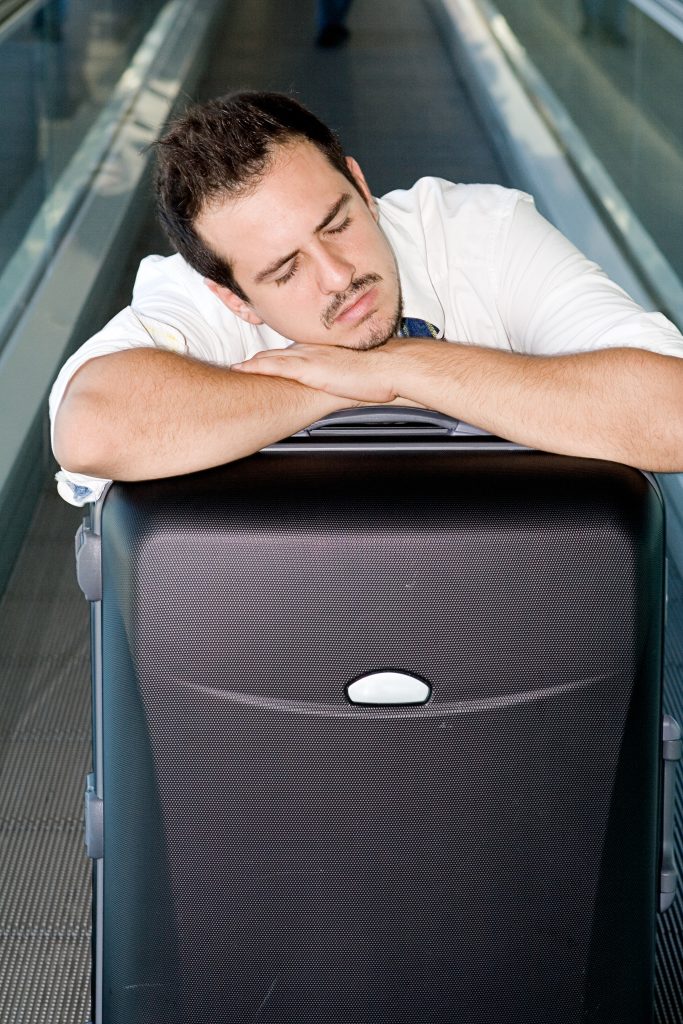People travel for business or pleasure. But there is always a price to pay in terms inconvenience before, during and after the trip. Disruption of your body’s circadian rhythm is one of those inconveniences if you are travelling across time-zones (east-west or west-east).
What is circadian rhythm? It is your body’s 24-hour biological clock. Circadian rhythms are physical, mental and behavioural changes that follow a roughly 24-hour cycle, responding primarily to light and darkness in your environment. The rhythm is disrupted because your internal clock is unable to adapt to a rapid change in the light-dark cycle. This causes disruption in sleeping and eating patterns, also known as jet lag.
The inconvenience of jet lag may last several days and some experts have suggested the recovery rate of one day per time zone crossed. During the days of propeller flights, jet lag was not a problem as the flights were slower and of more limited distance. Crossing one or two time zones does not typically cause jet lag nor does north-south travel. So it all depends on the number of time zones you cross.
There are no serious health consequences to jet lag. It does make you tired, moody, and may cause diarrhea or constipation. Airline pilots and in-flight cabin crew members are monitored for jet lag for safety reasons. You don’t want your plane crash or have hot coffee spilled on your lap.
There is no easy solution to prevention or management of jet lag. But the options are many. Before travel, try to go to bed a little earlier each night. That does not happen as we are busy trying to finish all we need to do before the trip. Some people try homeopathic tablets. Recently, I read about a new innovation Valkee Brain Stimulation Headset, which helps to alleviate jet lag by channeling bright light into the brain through the ear canal. Do your homework before you use pills or the headset.
An article in the New York Times (August 15, 2012) discusses “the latest (and perhaps most effective) jet-lag solutions” being developed by the fatigue management team at NASA Johnson Space Centre in Houston to help astronauts overcome jet lag two to three times faster than other travellers.
First, understand that the direction you are travelling makes a difference. Most people have an internal body clock that makes it harder for them to travel east. If you’re travelling east and want to adapt to the new time, you will have to wake up earlier and go to bed earlier than you normally would. This is known as advancing your body clock.
If you’re travelling west, you’ll have to adapt to the new time by waking up later than usual and going to bed later than usual, delaying your body clock. You can do that by wearing sunglasses even if you are in the plane. The idea is to ease yourself into the new time zone by consciously manipulating your exposure to light. So keep those sunglasses on.
Some people use synthetic melatonin to induce sleep. It is not a regulated medication so discuss with your doctor first. Light-therapy lamp is another option. It can speed up the process up to one hour per time zone if used correctly. You can try fasting to change the circadian rhythm to adapt to new eating time. Viagra has been tried in hamsters and the recovery from jet lag is faster by 50 per cent. It has not been tested in humans.
Controlling jet lag is fundamentally about controlling light and darkness. It is not always easy to do that. So, forget about jet lag, pack your suitcase and fly away – with or without Viagra.
Start reading the preview of my book A Doctor's Journey for free on Amazon. Available on Kindle for $2.99!
